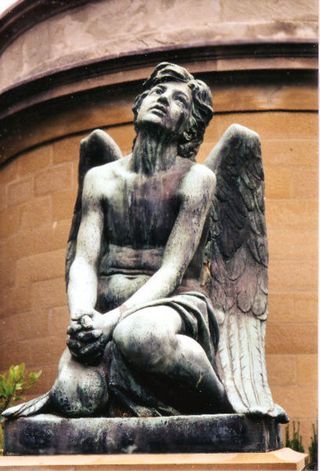 I am fascinated by the debate between the new atheists, eg Dawkins and Hitchins, and whoever listens to them. It seems to me though, much of the debate misses the point. I remember many years ago reading Bertrand Russels' essay Why I am not a Christian. Here Russel suggests two beliefs are essential to the Christian faith and then proceeds to knock them down. I remember when I first read the essay, my thought was that as a Christian I found neither of Russels' beliefs essential to my faith. (For the record they were: (1) that God exists, and (2) that Jesus was the best man who ever lived.)
I am fascinated by the debate between the new atheists, eg Dawkins and Hitchins, and whoever listens to them. It seems to me though, much of the debate misses the point. I remember many years ago reading Bertrand Russels' essay Why I am not a Christian. Here Russel suggests two beliefs are essential to the Christian faith and then proceeds to knock them down. I remember when I first read the essay, my thought was that as a Christian I found neither of Russels' beliefs essential to my faith. (For the record they were: (1) that God exists, and (2) that Jesus was the best man who ever lived.)
The modern debate is just as full of non-sequiturs. It does get a bit wearing when Dawkins tells me I believe something I don't believe and then calls me an idiot for believing it. The point to grasp is this debate is not about atheism (or theism); it is about idolatry.
Dawkins' particular target is creationists, and I agree wholeheartedly with everything he says about their beliefs. This leads me to apply my own label to the new atheists. They are angels. This Greek word means messenger and, by applying it to the new atheists, I mean they are messengers from God. They have been sent by God to help us identify our idols. They should therefore be treated in debate with utmost respect. As God's messengers they are loved by God and Christians must never forget to give thanks for their ministry. (The photo is of the mourning angel in the churchyard of San Miniato al Monte, Firenze, Italy).
However, (didn't you know that was coming?) there is a problem with atheism. Atheists don't go far enough. All of us have images of God that are idolatrous. To be consistent atheists should empty their minds of all images of God. These crop up in all sorts of places, for example, the invisible hand that keeps capitalism ticking over or the rather inchoate mind that guides evolution according to Dawkins. Of course, this is the journey taken by Christian mystics, it is an emptying, known by theologians as kenosis. It is interesting that when the mind is emptied of all preconceptions, mystics do not find nothing, or if they do it is not the sort of nothing they expected.
Atheists are profoundly mistaken if they believe rejection of God leads to the conclusion there is nothing outside the known universe. We have as much evidence for the existence of nothing as we have for the existence of God.
Of course, according to Barth, we should all do this exercise because all of us have false images of God. The only image we have is of God crucified on the cross, an instrument of Roman Imperialism. And it is in that context where we see the consequences of idolatry. False idols are never benevolent and this applies as much to atheists as it does to the rest of us.
Atheists are right to point to times in history where Christians have been driven to war with each other and people of other faiths because of our idols. My other blog is solely concerned about healing the wounds between Christians. But atheists cannot present themselves as blameless in this regard. Idols work on atheists as much as they do on Christians. Think back to the last century: the wars, the weapons of mass destruction, the landmines, the gulags, the holocaust. Most of these horrors can be traced to atheism, the rejection of religion. The rejection of one set of idols left human minds open to others more terrible than the first. My worry is that whilst most Christians might have learned this lesson, have the atheists?
Christianity is, as far as I know, the only faith that places at its centre an instrument of torture and death. Despite our history, it is not there to incite us to violence but to warn us of the dangers of leaving anything solely to the warped timber of humanity.

Recent Comments